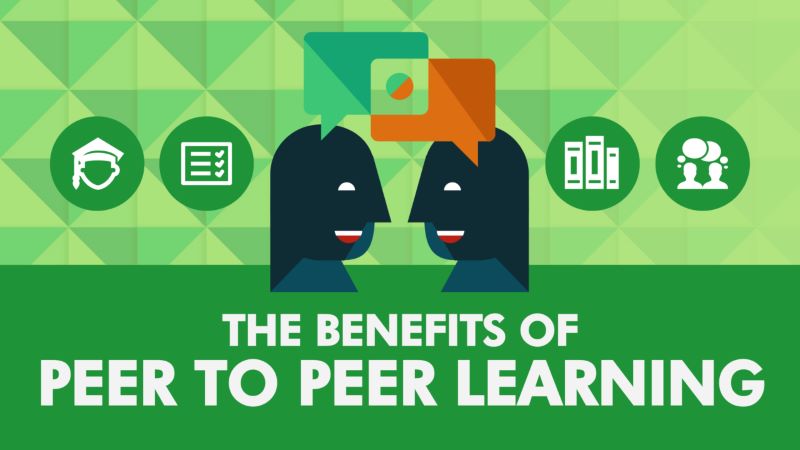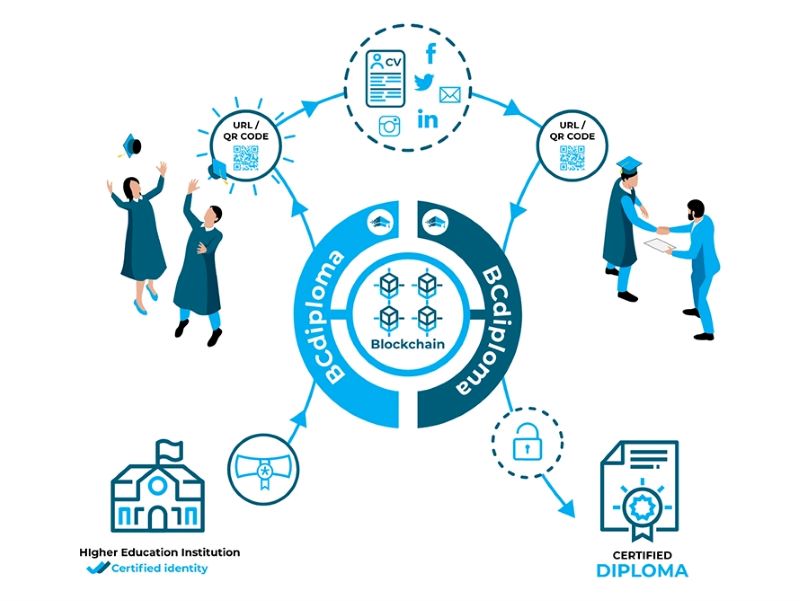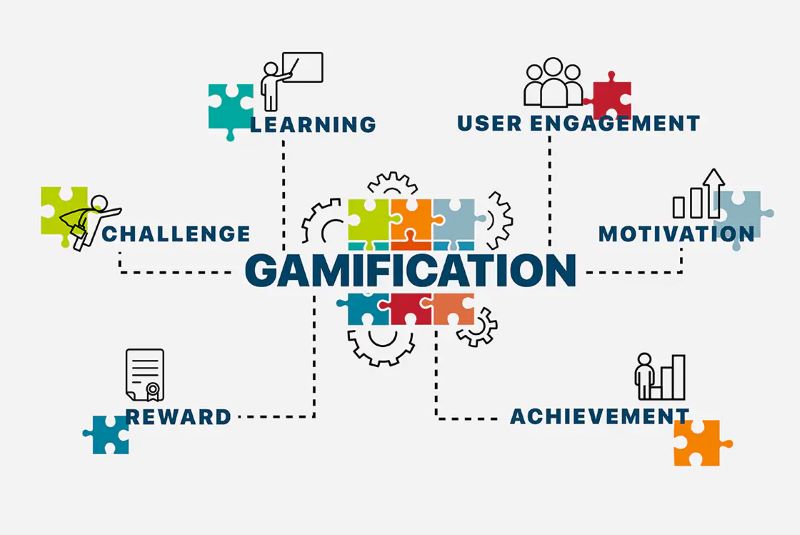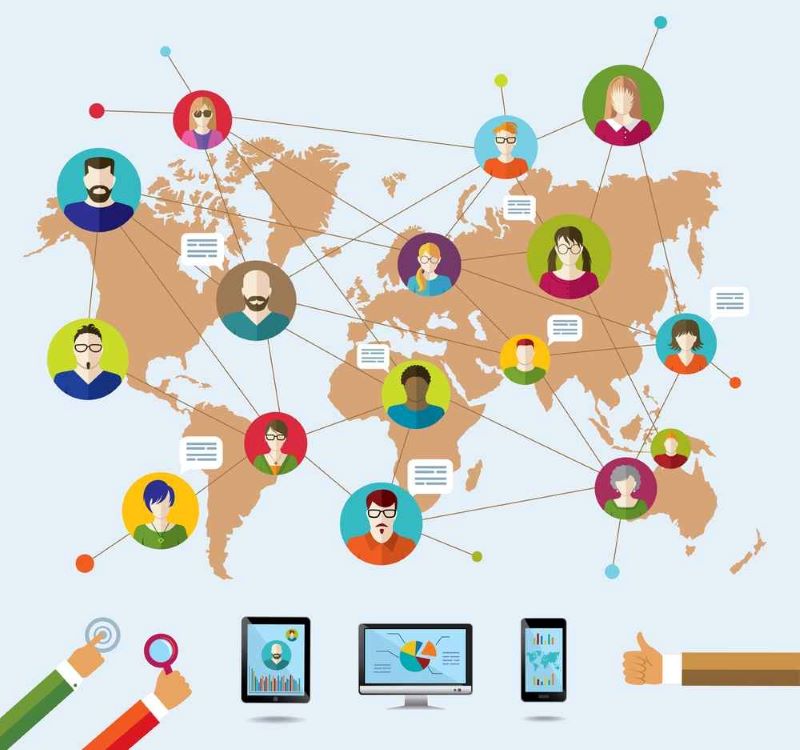Imagine a classroom that spans the globe, yet fits snugly into your living room. Welcome to the future of education with decentralized learning platforms, where school bells give way to the buzz of instant peer-to-peer connections. Say goodbye to the one-size-fits-all approach; this revolution is reshaping how we think about teaching and learning. With a focus on individuality, these platforms turn traditional education on its head, paving the way for custom-tailored learning experiences. Gear up to explore how this innovative landscape is not just altering the educational map, but also how we navigate the path to knowledge.
Embracing Decentralization: The Shift in Educational Paradigms
From Traditional to Peer-to-Peer Education Platforms
Imagine a classroom with no center stage. Kids learn from each other. Teachers guide, not dictate. This is peer-to-peer education. It thrives online. Kids connect from all over the world. They share knowledge. They solve problems together. It’s real teamwork, in real time.
Blockchain in education is key. It brings trust to these online spaces. Kids can count on the info they get. They can trust the work they share. This trust makes learning smooth. It keeps kids safe and sure.
We used to only learn in schools. Teachers were the main source. Now, we learn from peers too. Direct learning from friends and mentors. This switch changes everything. It tears down old walls. It builds new bridges in learning.
Implementing Decentralized Technology for Personalized Learning Journeys
Every child is unique. We all know this. Decentralized tech helps us act on it. It gives kids a path made just for them. Their pace. Their style. Their interests. Smart contract education systems track progress. They adjust as the kid grows. It’s like a map that redraws itself, leading to success.
Personalized learning journeys are big now. They respect each kid’s needs. With a blockchain, this road is clearer. Digital credentials mark the key stops. Each badge, each certificate shows a skill learned or a level passed. It’s proof kids and parents can hold on to.
This move to learner-centric education is no small shift. It rewrites the story of school. Kids at the center, tech as the tool. Decentralized educational resources let learning bloom in new soil. Digital, yet deeply human.
In schools, Distributed Ledger Technology (DLT) catches on slow but sure. It underlies this new way. It makes sure learning data talks across all boards. No lost creds, no missed credit. School is no longer just a place. It’s a living, growing web. Linked by trust, fed by curiosity.
These shifts, they ripple out. They touch tomorrow. They rewrite what it means to learn, to teach, and to thrive in a world so vast.
Peer-to-peer platforms, digital trails of progress, and learning that adapts. It’s not just a prediction. It’s what’s unfolding. Right before our eyes. And it’s just the start.
Reinventing Validation: Smart Contracts and Digital Credentials
The Role of Blockchain Certificates in Education
Can you picture a school where your achievements are safe and sound forever? That’s what blockchain in education can do! It’s like a digital locker that no one can mess with. Every time you finish a course or do something awesome at school, you get a certificate locked into the blockchain. Nobody can fake it, and it’s yours to keep and show off forever.
This tech is super smart. It uses things called smart contracts. They are like Pinky Promises on the Internet that always keep their word. When you do your part, like finish a project, the smart contract gives you your digital gold star automatically. This makes sure everyone knows what you’ve earned without any mix-ups.
Verifying Achievements with Digital Credentials Verification
Now, what if you want to show someone what you’ve learned? With blockchain, it’s easy. Imagine you’ve built a cool robot and got a badge for it. You want your next school or a job to see it. They just need to take a peek at the blockchain. Whoosh! They see your badge shining bright with no doubts about it.
This is a big deal for all of us who learn things online or from different places. We can gather badges from MOOCs, peer-to-peer education platforms, or even by learning a new game. They all add up to show the world what we can do. This means our learning adventure never has to stop. We can keep piling up skills and badges that show everyone our superpowers.
Do you remember when you had to beg past schools for your records? Wave goodbye to that hassle. With blockchain, your learning history follows you like a shadow. You own it. You control it through something called a self-sovereign educational profile. How cool is that? You get to hold the reins of your learning journey.
Blockchain and smart contracts are making some awesome changes in our classrooms, online, and even in whole schools. From little kids to grown-ups always trying to learn more, this means our hard work and smarts get the spotlight they deserve. And for everyone teaching and learning, it means we can trust the gold stars, badges, and robot-building certificates a whole lot more.
In my world, I see this as the first step to a galaxy where learning is a treasure hunt full of rewards everyone can see, check, and cheer on. And this is just the beginning! As we team up with robots and also travel to virtual worlds for class, knowing our wins are safe on the blockchain is a big high five for all of us learners out there.
Engaging Learners: Gamification and Token-Based Reward Systems
Enhancing Motivation through Token-Based Learning Incentives
You get a gold star for finishing a book. That was school back in the day. Now, we get tokens, much cooler. These tokens aren’t just fun; they really make us want to learn. We earn them when we hit goals in class. For every project we nail, every test we ace, we get tokens. These can turn into real goodies or even help us later in life.
Blockchain in education lets this all happen. It’s safe and keeps track of all our tokens. The coolest part? It can be with us no matter where we learn. It’s like having a piggy bank that follows you.
We use smart contracts to handle these tokens. They’re like robot promises that always keep their word. When we do what we said, poof, tokens appear. This is how we get pumped to learn more. It makes us feel like we’re in a video game, but for school.
Gamification Methods to Foster Student-Driven Learning Communities
Think of your bestie cheering you on. That’s what gamification is like. We’re all in this game of learning together. It turns hard stuff at school into fun challenges. And everyone loves a good challenge, right?
In this game, we help each other and win together. This isn’t the teacher’s game; it’s ours. We get to talk, share ideas, and solve puzzles. We’re like detectives cracking school mysteries. And the tools? Our phones, laptops, cool apps that join us all.
These games give us badges and points to show off what we can do. And who doesn’t like to show off a bit? Decentralized technology lets this happen anywhere, anytime. Gamification connects us in ways old classes just can’t.
EdTech innovations are always thinking up new games for us. They want us to have fun learning. Can you imagine learning math by battling dragons? That’s where we’re headed. It’s all about making friends, learning, and earning badges – all while fighting dragons.
This kind of learning sticks because it’s fun. It’s not just about books and tests anymore. It’s about the journey with friends, crazy challenges, and yes, earning those sweet tokens.
So what’s the future like? It’s us learning from each other, playing games to get smart, and keeping those tokens safe on the blockchain. We’re set for a future that’s more than just grades. It’s about the skills we earn and share – no matter where we are.
Building for the Future: Leveraging Emerging Technologies in Education
The Integration of VR and AR in Decentralized Education
Imagine you put on a headset and step into a classroom from your home. This is what Virtual Reality (VR) and Augmented Reality (AR) are doing in education today. They let you learn by seeing and doing, not just reading. When we add these tools to blockchain in education, we build new worlds for learning. We call this decentralized education. It means the power to learn is in your hands, not just your school’s.
Why does this matter? VR and AR help you grasp tough ideas by showing them in a way that’s clear. Think about looking at a 3D model of an atom in science class. It pops right up in front of you. You can turn it around, zoom in, and see how electrons move. This isn’t just cool—it helps you remember better than a picture in a book.
Blockchain makes this even more powerful. With blockchain, your achievements in these VR and AR lessons are safe and can’t be lost. Teachers share their own lessons with kids far away. We all get to learn more, from more places. It’s like a global classroom without walls.
Advancing E-Learning Platforms with Adaptive Learning Algorithms
Adaptive learning algorithms change how we learn online. They act like a coach that knows you very well. As you learn, they show you what you need to work on and skip what you already know. This saves you time and keeps you interested. No more sitting bored in class!
This tech gets smarter as you use it. It learns your style and pace. Imagine a path that forms in front of you as you walk. That’s what adaptive learning does. It creates a personalized learning journey just for you. Barriers in learning start to fall. Kids who learn faster aren’t held back. Kids who need more time get it.
Blockchain and DLT make sure your progress is kept safe. No one can change or lose your records. It also makes sharing easier. If you move or switch schools, your learning path goes with you. Nothing is lost.
We’re not just talking about today or next year. This is about the future of learning. Using decentralized tech and EdTech innovations, we’re building a smarter way to learn. You’re the boss of your learning journey, and the world’s knowledge is at your fingertips. This is our big dream, and it’s becoming real, one tech piece at a time.
Decentralized education is the key. It connects us all in a big learning web without a center. It’s fair, open, and full of chances for everyone, everywhere. With VR and AR, we step into new worlds. Adaptive algorithms teach us in our way, at our speed. Books and boards are just the start. Our tools are growing, and so is how we learn. Imagine that.
We’ve explored big changes in how we learn today. We talked about moving from old school ways to learning from each other online. We saw how tech gives us learning that fits us like a glove.
We dove into how blockchain can keep our learning wins safe and checked. It makes sure no one can fake what we’ve achieved.
Then we looked at making learning fun and rewarding with games and tokens. This can make us want to learn more and better.
Lastly, we saw how cool new tools like VR and smart learning programs are making education cooler and smarter.
I believe these changes can make learning better for everyone. They help us learn what we want, how we want. They also keep our hard work safe and fun. Most of all, they make sure learning never stops getting better. Let’s keep our eyes on these trends because they’re shaping the future of education.
Q&A :
How are decentralized learning platforms shaping the future of education?
Decentralized learning platforms are increasingly gaining attention for their potential to democratize education, allowing for a more personalized, student-centered approach. These platforms are decentralizing the traditional education model by making learning resources accessible to a wider audience without the constraints of physical location. This shift could result in more collaborative and flexible learning environments, where learners can connect with educational content and communities across the globe. As a result, the future of education with these platforms is anticipated to be more inclusive, adaptable, and geared towards lifelong learning.
What advantages do decentralized learning platforms offer over traditional education systems?
Decentralized learning platforms offer several advantages over traditional education systems, including greater accessibility, cost-effectiveness, and customizability of learning experiences. As these platforms are not bound by geographical limitations, learners from anywhere can access a wide variety of courses and resources. Additionally, many decentralized platforms operate on models that significantly reduce costs, making education more affordable. Personalization is another key benefit, as these systems can provide tailored learning paths that adapt to individual learners’ needs and pace, something that is challenging to achieve in a conventional classroom setting.
In what ways can decentralized learning platforms promote lifelong learning?
Decentralized learning platforms support lifelong learning by providing continuous access to educational resources for individuals of all ages and stages in life. These platforms often facilitate a variety of learning formats, such as microlearning modules, interactive courses, and expansive resource libraries that individuals can utilize at their own convenience. The removal of traditional barriers like age, formal prerequisites, and rigid schedules allows for ongoing education that can evolve with a person’s career and interests, fostering a culture where learning never truly ends.
Can decentralized learning platforms lead to better educational outcomes?
There is potential for decentralized learning platforms to lead to better educational outcomes by offering more relevant and engaging learning experiences that cater to individual learning styles and needs. By leveraging data analytics and artificial intelligence, these platforms can provide real-time feedback, adapt content difficulty, and customize learning paths to optimize the learning process. Additionally, the emphasis on community and peer-to-peer learning within many decentralized environments can enrich the learning experience and facilitate deeper understanding.
What challenges do decentralized learning platforms face in transforming education?
As promising as they are, decentralized learning platforms face several challenges in transforming education. Issues such as digital divide, ensuring content quality, and providing accreditation that is recognized by employers and traditional educational institutions are at the forefront. Furthermore, there is a need to maintain user data privacy and security, especially when these platforms operate on a global scale. Additionally, changing the perception of traditional education’s value and gaining trust in new, decentralized forms of learning can be significant obstacles to widespread adoption.





RELATED POSTS
Casper Crypto: Exploring and evaluating growth potential
As the cryptocurrency market continues...
Preventing All Types of Attacks on Blockchain: Your Ultimate Guide
Preventing all types of attacks...
Challenges That May Hinder Blockchain Adoption: Adoption Really at Risk?
"Challenges that may hinder blockchain...
Emerging Trends In Blockchain Technology: What’s Changing the Game in 2023?
Emerging trends in blockchain technology:...
How is blockchain used in DeFi: Unlocking Financial Freedom
How is blockchain used in...
Hashgraph Consensus Demystified: Unlocking Blockchain’s Future Potential
Discover the technical mechanics of...
Economic Bubble in Crypto – 3 Experiences to deal with it
In the volatile cryptocurrency landscape,...
Towns Airdrop – Expert Experience in Mining
To optimize benefits from the...
4 Reasons You Should Pay Attention to Banana Zone Crypto Today
Banana Zone Crypto is gaining...
PeckS Airdrop – Strategy to Receive $PeckS Airdrop
Participating in the PeckS Airdrop...
Binance Charity and the $1 Million USD Airdrop Campaign for Flood Relief
Binance Charity is a pioneer...
Inter Blockchain Communication: Unveiling the Future of Cryptocurrency Connectivity
What is Inter Blockchain Communication...
Solutions for Scaling Blockchain Networks: Unlocking Next-Level Potential
Discover solutions for scaling blockchain...
What is Metamask wallet and the secrets behind it
What is Metamask wallet and...
Unlocking the Secrets: Role Of Cryptography In Blockchain Security
Reinforcing Blockchain Security with Cryptographic...
Liquid Native Restaking: Unlocking new potential in Ethereum staking
Liquid Native Restaking is emerging...